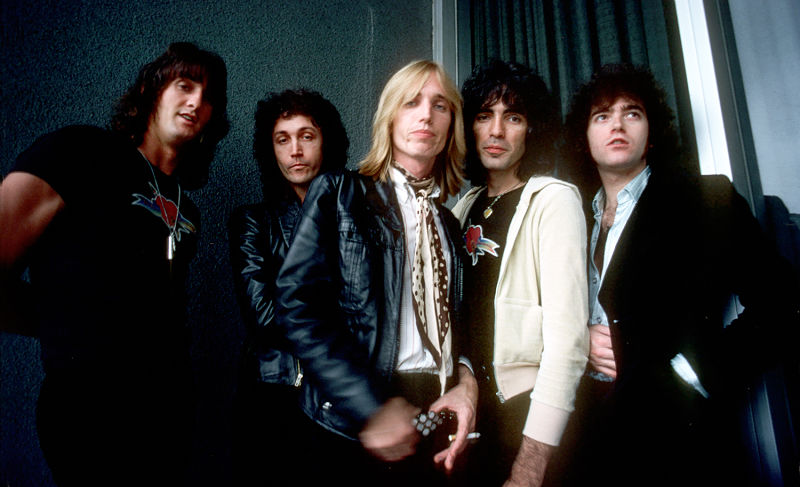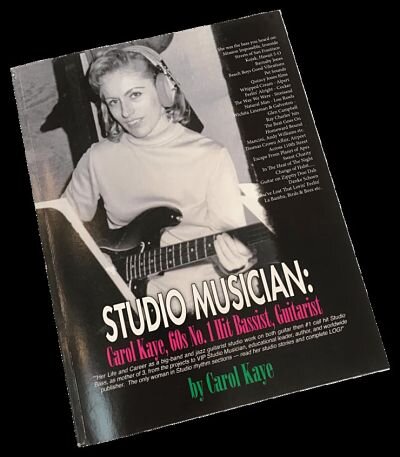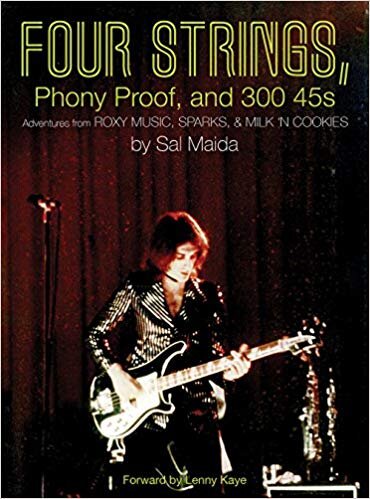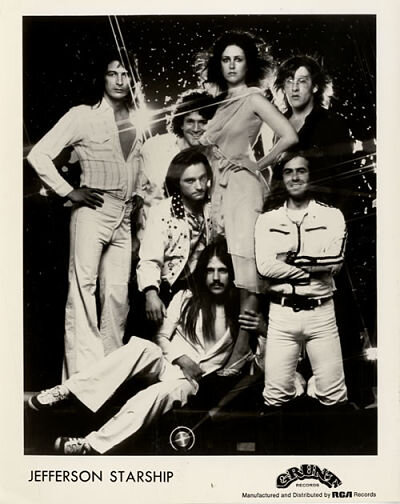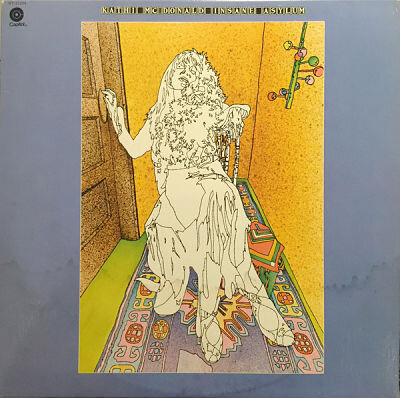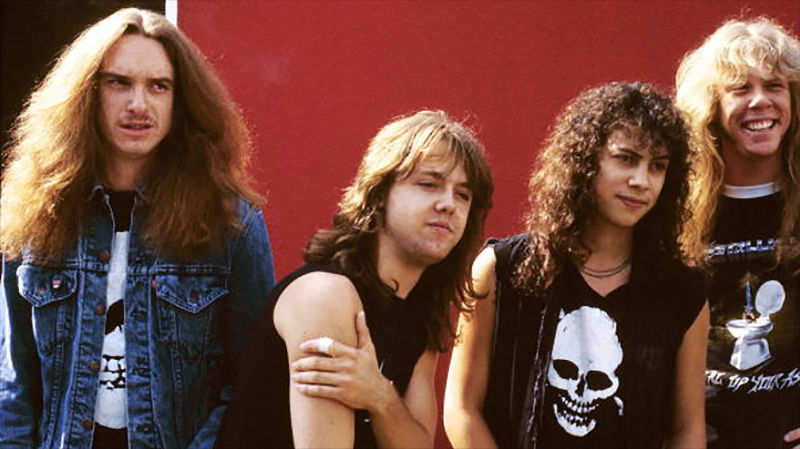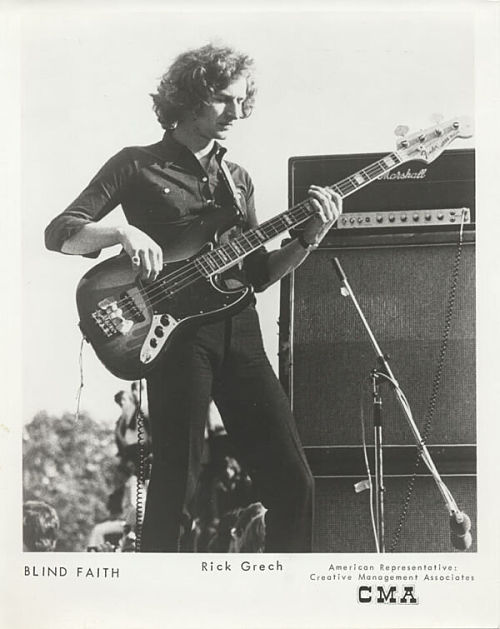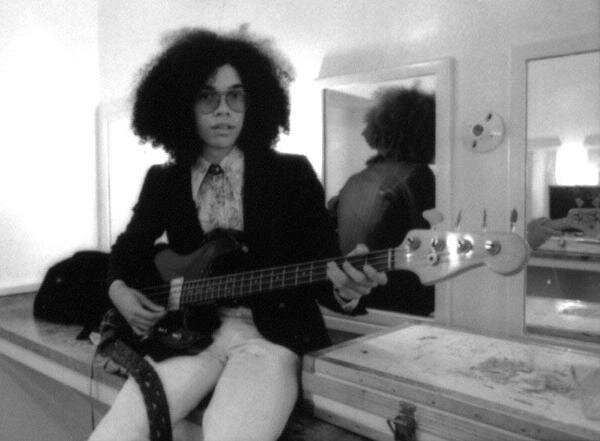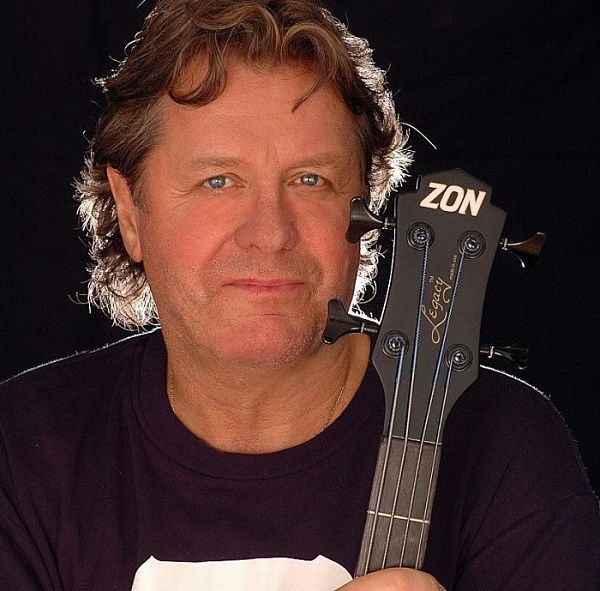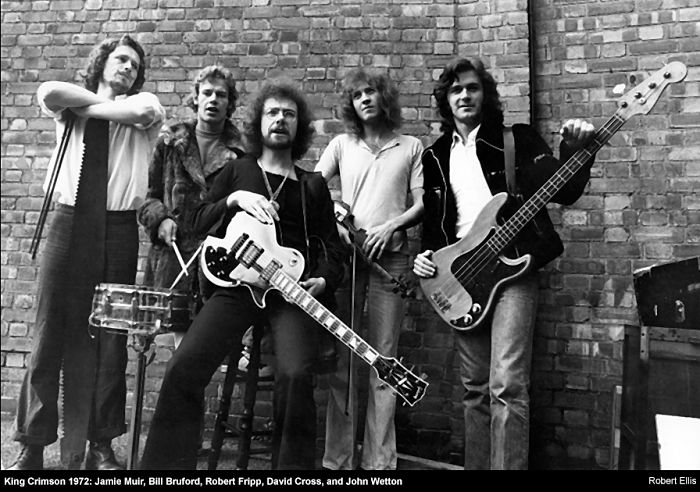He embodied the spirit of “Rock ‘n’ Roll Stew” a seminal track he composed with drummer Jim Gordon.
The late Richard Roman Grech was a major presence on the British music scene of the late 1960s – 70s, plying his craft with a Fender Jazz bass -and a wad of foam (“waddafoam”) strategically placed in proximity to the bridge to render a partially muted resonance akin to an upright.
Ric, who also doubled on violin and cello, anchored a who’s who of Brit rock royalty: Family, Blind Faith, Eric Clapton, Rod Stewart, Ronnie Lane, Eddie Harris, Jim Capaldi, Gram Parsons, the Bee Gees, and the KGB band with Mike Bloomfield and Carmine Appice – to cite a very select few.
Widely respected by his peers and the among the most in-demand session players of his era, Grech was an exceptionally skilled pocket and melodic player who incorporated jazz, rhythm & blues, and classical influences into his expansive body of work.
After the commercial failure of KGB, Ric retired from the music business in 1977, and sadly passed at the age of 43.
The Rick Grech story would not be complete sans the mention of his relationship with Gram Parsons.
Reflects James Spina of Creem Magazine / Hit Parader: Grech produced Gram’s first solo LP called GP. He built quite a friendship with Rick previous to that and in fact lived with Rick and his family when in England and when not hanging with Keith during the Exiles daze. Daze might be a key word for all of this since some much of it happened under a haze of drugs. Both Gram and Rick had substance abuse issues but even in light of that the actual production and even the song writing process for GP is clean and classic.

Musician Kenny Wilson recalls his close relationship with Ric Grech. Courtesy of www.KennyWilson.Org
However, personally untouched by the economic downturn (living “on the dole” was alright as long as you didn’t have expensive habits), I continued to pursue and develop my career as a singer/songwriter. There weren’t many gigs in the centre of Leicester at that time so I and some of my musical friends started a club in the top room of a pub called the Town Arms on Pocklington’s Walk. We met every week and played songs and generally had a good time. Everyone at that time was making a big effort and many of the songs were excellent. Regulars at the time included Geoff Overon, Mick Pini, Dave Plimmer, Gwyn Jones, Annie Williamson and many others, some of whom I’ve forgotten the names of. None of us were making much money at the time but that didn’t really matter. We were more interested in writing and performing good songs.
In 1975 I was living on the St. Matthews Estate which was an area of social housing near the centre of Leicester. It was a time of economic upheaval with hyper-inflation and widespread industrial unrest. The then prime minister, Ted Heath, announced a three day week at the height of a miner’s strike that eventually brought down the government and returned Harold Wilson and a Labour government to power. On top of that there were many terrorist acts being committed by the IRA and other extremist groups with particularly horrendous bombings in Birmingham and Guildford. It was a time of great unrest and social change. The hope of the 60s had dissolved into the pessimism and paranoia of the 70s.
What I do know is that I met him late 1975 and subsequently did gigs, wrote songs and recorded demos with him until the early eighties when we went our separate ways. When you look at biographies of Rick they all tend to agree that his career ended in 1977. Bizarrely, many say he became a carpet salesman. I don’t know where that came from but it was the sort of thing he would say as a joke. He had a cynical and sometimes surreal sense of humour. He actually saw himself as a musician and played in various combinations until his untimely death in 1990. The period I knew and worked with him was between 1975 and 1982 and we did many gigs together mainly around the Midlands area in the U.K.
I realized as I started this memoir that I don’t really know how to either spell or pronounce Rick’s name. Until recently I thought it was Ric and that Grech was pronounced with a hard “K” sound. I’m not sure now. On most of his recordings, and his own signature on a photograph I have, it is spelled Rick and many people I have spoken to who knew him assure me that Grech should be pronounced with a “CH” sound. I also thought he was of Polish origin but many biographies online say he was Ukrainian. Not a great start really as I am now totally confused and can hardly put myself forward as an expert! Mind you, it fits the person I knew for many years who was both interesting and sociable but was also a bit of an enigma who rarely gave a straight answer to any personal question.
One night, out of the blue, Rick Grech turned up with his violin. He commenced to play along with people and then borrowed a guitar and sang some of his own songs. He obviously enjoyed himself and started to come every week. At the time he had just finished working with Gram Parsons and had even made two records with the original Crickets! One week he brought a cardboard box full of records to the club. It was by a “super-group” called KGB featuring Rick on bass. He proceeded to give everyone a free copy of this! This is when I first encountered Rick’s evasiveness. I said shouldn’t he be in America promoting this record but he told me nothing and didn’t want to discuss it! It was at this time that rumours started circulating that he had been expelled from America and could not return. I don’t know any facts about this but I know he never returned when I knew him in the 70s.
At the beginning Rick was a bit of an anachronism with his Rock Star status and red Ferrari which he crashed and abandoned shortly after I met him. But he was a nice guy who was soon part of the scene and we started working with him in various ways. At the time my maisonette (like a third story house on top of another house!) was a centre for continual jam sessions. I had a reel to reel tape recorder set up (a bit like the Basement Tapes) and recorded many sessions that involved Rick and lots of others. Unfortunately, the tapes I used were the cheapest available and oxidized over time and are virtually unplayable now. Rick was buzzing with ideas and writing some great songs and playing some fine fiddle. He was still involved in recording as a session musician with people like Rod Stewart and was still managed by impresario Robert Stigwood who released a compilation album of him in 1973. He had also promoted the talents of guitarist Albert Lee and had involved him in records with the Crickets and “Doctor to the Stars” turned country singer, Hank Wangford. It seems like Rick was everywhere, doing everything, he couldn’t fail, but cracks were beginning to show. Hank Wangford says this of his time with Gram Parsons and Rick:
“I spent four months in Canada, and came back and resolved to make a country album with Rick Grech for Robert Stigwood, I called Rick up one day and said, ‘You know who should co-produce this? Gram Parsons.’ He said, ‘I know Gram well’, and called him up. And Gram came over. “This was 1972. I did a demo with Rick on bass, Mike Kellie from Spooky Tooth on drums, Mike Storey on piano, and Pete Townshend on lead guitar. Glyn Johns was the engineer. I could have been forgiven for thinking I’d made it. But the whole thing fell apart. Gram came over, we spent a couple of days at Rick’s house going over the songs, but it fell apart because of heroin. Rick and Gram just got really stoned, and I didn’t take heroin. I hated it. Rick was so wrecked, he couldn’t get his recording machine to work. For hours and hours, he and Gram would get higher and higher, and nothing happened. Nothing was put on tape. Actually, that time, he brought with him George and Tammy’s new duets album We Go Together. And that was Gram’s role model for him and Emmylou.”
There’s a horrible prescience to this because years later I was with Rick when he was incapable of working his tape machine because he was so wasted! He became a victim of serious drug and alcohol abuse that eventually sent him to an early grave!
In 1976 Rick decided to form a band to showcase his songs. It was based on the kind of music Gram Parsons had been producing on his two solo albums “GP” and “Grievous Angel” both of which contained songs written by Rick although he didn’t play on them. He did have a producer credit on “GP” though. He teamed up with a local Irish/Country band called the Lentones at the time but who changed their name to Rhinestone in 1976.
They did gigs at Irish clubs and were breaking into the Country & Western club scene that was becoming very popular at the time. They were a very good band who won a national Country Music competition and played at the Wembley Stadium at a big festival with Rick on fiddle. To get the “Gram” sound he invited singer Claire Hamill to join him. She was a fairly well-known singer/songwriter at the time from the North East (I’d seen her play when I was a student in Darlington) and had recorded four solo albums at that time. She was favourably compared to Joni Mitchell. Praise indeed!!
In 1976 we had moved operations from The Town Arms to a place called Watson’s Restaurant on Belvoir Street, Leicester. This was originally intended as a kind of club for well-to-do business types but it was short on customers. We turned it into a live music venue and it did very well for over a year until the owners went bankrupt. It was here that Rick and Claire refined their songs and harmonies and they sounded very good. It was time to go on the road. A band was formed and a tour was set up. Robert Stigwood was still the manager and was setting up recording etc.
What happened then can only be called a disaster. I went to one of the gigs at the Nottingham Boat House (a well known venue at the time) and Rick was not on his best form. Captain Video (an up and coming country rock band) did the support but the main problem was that most of the audience were not expecting Country music. They were there to hear Rick play bass and do a Rock set. He didn’t touch the bass and played no Rock, no Blind Faith, no Traffic, no Family. I believe this was the reaction that met most of the gigs on this tour! Although Gram Parsons had convinced us that Country was hip there were a lot of people who hadn’t got the message.
A shame, because actually it was potentially very good. The harmonies and songs were excellent and the musicians were good if a little unrehearsed. They should have toured the Country Music Clubs who would have loved it! To make matters worse I believe Claire and Rick ran up enormous expenses at London’s Claridges Hotel and charged them to Robert Stigwood who then immediately dropped Rick from his management. Well, that was the story at the time and I’m sure that’s what Rick told me!
It was towards the end of 1976 that I started doing gigs with Rick. By this time his drug and drink addiction was spiralling out of control and he was getting short of money. A Gibson Dove that had belonged to Gram Parsons began to be pawned regularly and the royalties from his recordings had begun to dry up. For the next four years I did many gigs with Rick as a duo and also in a band. At one point we were doing over four gigs a week! One of the most memorable regular gigs we did was at the Crows Nest on King Richards Road, Leicester every Tuesday night.
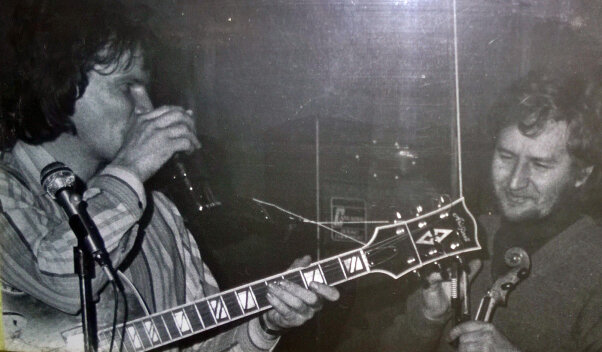
Kenny and Ric courtesy of Kenny Wilson Org
Ric Grech Sound & Vision…
Family:
“How Hi The Li” (composed by Grech) https://youtu.be/8GgzLYI1RK0
“Old Songs New Songs” https://youtu.be/8cJAB7Wk8y8
“Face in the Cloud” (composed by Grech) https://youtu.be/–BtEE2f9Ck
Traffic:
“Rock and Roll Stew” https://youtu.be/RjztpVSLFS8
“Medicated Goo” https://youtu.be/Pew9CweLjAU
“40,000 Headmen” https://youtu.be/pc1Hz8S2qhs
Blind Faith:
“Can’t Find My Way Back Home” Live at Hyde Park https://youtu.be/PJJnA6zEcGk
“Well Alright” https://youtu.be/oj5u3Yf28LE
KGB: “I’ve Got a Feeling” https://youtu.be/jtHCtR02cjo
Gram Parsons: “Streets of Baltimore” https://youtu.be/Xi0c2clOqp0

Courtesy of Steve Winwood Com
